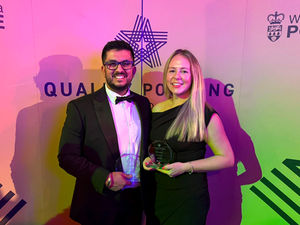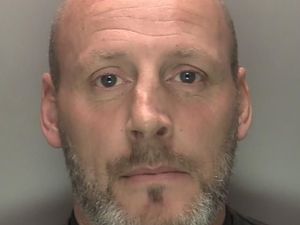New police unit to combat violent West Midlands crime epidemic
A new police unit formed to combat the region’s violent crime epidemic is being launched today.
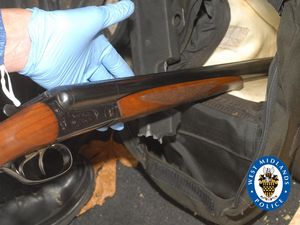
The £4 million Violence Reduction Unit will roll out across the West Midlands in a bid to tackle the rapid rise in gun and knife crime on the region’s streets.
Police and Crime Commissioner (PCC) David Jamieson says the body will be a “real force” in reducing the number of victims by addressing the root causes of crime and focusing on prevention.
It will bring together police, health professionals, schools, youth workers and local authorities.
Knife crime has risen by 85 per cent since 2012, while in the last year alone gun crime and violent crime have shot up by a third.
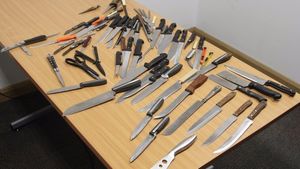
Mr Jamieson, said: “The VRU will be set up and designed to tackle the causes of crime and, in the process, reduce the number of victims and perpetrators.
This is the first time, in recent history, that the public sector has come together, on this scale, to address and reduce violence in our region in this way. I welcome the opportunity that this brings and pledge to work tirelessly with partners to reduce levels of violence in our region.”
Projects will include placing care workers in A&E units across the region to help “untangle” people from a “web of violence”.
Experts will be based in GP surgeries to help domestic violence victims and there will be a roll out of violence prevention programmes in schools.
It has been backed by Government funding of £3.37 million, with the PCC donating a further £524,000 and West Midlands Police giving £140,000.
Call to stem the tide of ceaseless pain
In recent years the West Midlands has been rocked by a series of violent killings, many of which have involved young people.
Since the start of 2017 there have been more than 125 murders across the region, a shocking figure that has led West Midlands Police to take drastic action in a bid to curb the bloodshed.
Among those killed was James Brindley, a 26-year-old who was knifed to death on a night out in Aldridge in June 2017.
His family has since set up The James Brindley Foundation, a charity aimed at raising awareness of the dangers of knife crime.

Speaking at the recent launch of awareness sessions at Walsall Manor Hospital, Mark Brindley said: “We will always be completely overwhelmed by the loss of James but in his memory we want to honour everything he stood for and his unwavering care and consideration for others.
“If the work we do together can spare just one family the pain we are living with or encourage a young person to take the right path then it will be worthwhile.”
Keelan Wilson was just 15 when he was stabbed to death in the Merry Hill area of Wolverhampton in May 2018.
Although nine teenagers were arrested by West Midlands Police in connection with his murder, no-one has ever been charged.
In October 2017, 19-year-old Reagan Asbury was knifed to death when trouble flared outside a boxing event at Walsall Town Hall.
Convicted drug dealer Tyrone Andrew, who also had convictions for wounding with a knife, was jailed for 14 years after being found guilty of manslaughter.
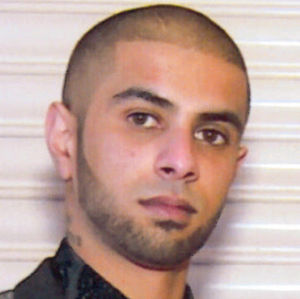
Jaskaran Kang, 24, died after he had been subjected to a ferocious attack by knife wielding thugs in January 2018. A total of four men were jailed for their part in the crime, two of whom were found guilty of murder.
In April 2018, Viktorija Sokolova was raped and murdered in West Park, Wolverhampton. Ayman Aziz was given a life sentence and ordered to spend at least 19 years in jail after being convicted of her murder.

The killings have come during a period where violent crime – and in particular crime involving weapons – has hit an all time high in the West Midlands.
There was a rise of 578 violent offences over the last 12 months, with the figure including 23 murders, 46 attempted murders, 96 threats to kill, 1,938 robberies and 1,298 stabbings that resulted victims suffering serious injury.
Searching for cure to plague of violence
It is a revolutionary programme that police chiefs hope will curb the rising tide of violent crime plaguing the streets of the West Midlands.
The £4 million Violence Reduction Unit is part of a new approach to policing in England, which sees forces linking up with youth workers, health professionals and other agencies to stem the flow of violence in its tracks.
It is based on a Police Scotland model from 14 years ago that helped transform Glasgow from Europe’s murder capital into a safer place.
Its key message – which in turn followed the so-called ‘Boston miracle’ model from the 1990s – is that gang-related stabbings and other associated violence are not just a policing issue but a public health issue.
Rather than responding to violence solely through the legal system, the emphasis is put on prevention, with the argument being that crime can be drastically reduced by stopping people from getting involved in it in the first place.
Now police chiefs in the West Midlands hope to mirror the success north of the border, building on the simple motto: “Violence is preventable, not inevitable.”
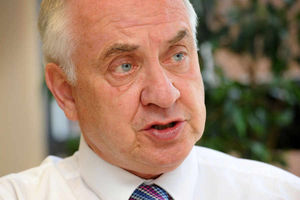
West Midlands Police and Crime Commissioner David Jamieson, has long argued for greater police funding to put more bobbies on the beat, but he believes manpower alone will not solve the issue.
Last year the force recorded more than 70,000 cases of violence against the person, around 190 incidents a day. There were 3,210 serious offences involving a blade and 50 murders – the highest levels recorded for a decade.
For Mr Jamieson, a policy of “lock ‘em up and throw away the key” is pointless at a time when more young people than ever are carrying weapons on the streets, despite stronger sentences for knife possession.
The aim of the the new unit will be to nip violent crime in the bud at the earliest possible stage.
This means investing £700,000 in projects aimed at diverting youngsters away from gangs.
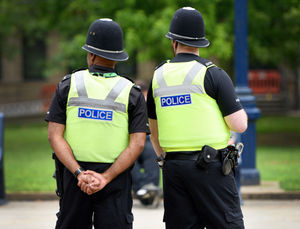
A pilot scheme at Wolverhampton’s New Cross hospital, which saw case workers placed in A&E units to speak with victims of crime will be rolled out to other hospitals in the region.
And violence prevention programmes will run in schools, as well as packages of support designed to prevent prisoners re-offending after they are released.
The unit will also be responsible for assessing the scale of the violence on the region’s streets – and which groups are most affected.
It will run alongside Project Guardian, launched earlier this year, a £7m scheme focusing on prevention and enforcement.
'Public health approach'
Mr Jamieson says the unit will push a “public health approach” similar to the one used by doctors to contain or prevent the spread of disease and focus on what can be done to reduce the spread of ill health and protect the public. It has been backed by health bosses.
Dr Sue Ibbotson, Public Health England’s director for the West Midlands, said: “Violence is a public health issue. It causes physical and mental ill health, has its roots in adversity, and limits the chances of our children and young people.
“Violence is preventable if we work determinedly together as public sector agencies with communities to understand the problem and what causes it, and to put into practice what works to enable individuals and communities to thrive, and to stop violence before it starts.”
Phil Johns, deputy chief executive for NHS Birmingham and Solihull Clinical Commissioning Group, said: “The impact of violence on the local NHS is so profound, we have to take urgent and collective action.”
The West Midlands could also follow Glasgow’s efforts to augment the work of the unit by offering youngsters an alternative to gang membership, such as youth clubs, as well as the prospect of training and work.
Wolverhampton Council leader Ian Brookfield, who was due to speak at the launch of the unit at the city’s Grand Station today believes youth centres can play a crucial role in reducing violence.
“As a council we will place a new emphasis on supporting young people to stop them from getting drawn into crime.”



